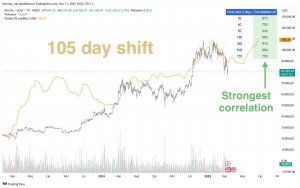Scale AI’s MEI Approach: Redefining Hiring Practices in the Tech Industry

In a bold move that aims to redefine hiring practices within the tech industry and beyond, Scale AI has announced a shift towards prioritizing Merit, Excellence, and Intelligence (MEI) over the more widely discussed Diversity, Equity, and Inclusion (DEI) framework.
“That means we hire only the best person for the job,” Alexander Wang, founder and CEO of Scale said in a company statement. “We seek out and demand excellence, and we unapologetically prefer people who are very smart. We treat everyone as an individual.”
This decision, articulated in a recent company announcement, emphasizes the company’s commitment to maintaining a meritocratic approach to recruitment and talent management. Scale AI’s leadership believes this focus on MEI is not only pivotal to their past successes but is also crucial for their future endeavors.
“We do not unfairly stereotype, tokenize, or otherwise treat anyone as a member of a demographic group rather than as an individual,” Wang said.
Scale AI’s Success: A Testament to MEI
Scale AI has garnered significant achievements in the AI industry, powering breakthroughs in Level 4 autonomy, partnering with OpenAI on Reinforcement Learning from Human Feedback (RLHF) since GPT-2, and supporting the Department of Defense and major AI labs. Their recent $1 billion financing transaction further underscores their standing as a leading force in the AI sector. According to the company, these accomplishments are directly attributable to their relentless pursuit of hiring the best talent available, a process they now formally enshrine in their MEI principle.
The MEI Principle: Core Tenets and Implementation
The MEI principle at Scale AI revolves around three main pillars: merit, excellence, and intelligence. This principle dictates that the company hires individuals based solely on their ability to perform the job at the highest level, their demonstrated excellence in their field, and their intellectual capabilities. This approach is intended to ensure that every new team member contributes to the company’s mission and helps drive its innovation forward.
Scale AI’s commitment to MEI involves several key practices:
- Personal Involvement of Leadership: The company’s leadership, particularly CEO Alexandr Wang, remains deeply involved in the hiring process. Wang personally interviews or reviews every candidate, underscoring the importance of maintaining high standards.
- Individual Assessment: Each candidate is evaluated as an individual, not as a representative of any demographic group. This avoids stereotyping and tokenism, ensuring that decisions are based purely on the merits of the candidate.
- Fair and Objective Selection: The hiring process is designed to be free from biases related to race, gender, or other demographic factors. By casting a wide net for talent and selecting the best objectively, Scale AI aims to naturally foster a diverse workforce without resorting to quotas or preferential treatments.
Challenging the DEI Paradigm
The announcement addresses a common misconception that meritocracy conflicts with diversity. Scale AI posits that no single group has a monopoly on excellence, and a truly merit-based hiring process will naturally result in a diverse team. By focusing on individual talent and performance, Scale AI believes it can achieve both a high-performing team and a variety of perspectives and ideas.
This stance challenges the prevalent DEI framework, which often emphasizes demographic representation and equity measures. Scale AI’s approach argues for a shift towards evaluating each individual on their own merits, ensuring that all hires are made based on their ability to contribute to the company’s goals.
With high profile DEI scandals including DEI bellwethers like Boston University’s Ibram X. Kendi and Harvard’s Claudine Gay, many are calling for an end to DEI practices.
Some have reported that policy backlash has caused deep cuts in HR and DEI payrolls.
Implications for the Tech Industry and Beyond
Scale AI’s move towards MEI could have significant implications for hiring practices across the tech industry and potentially other sectors. By demonstrating that a merit-based approach can lead to both excellence and diversity, Scale AI sets a precedent that other companies might follow. This could lead to a broader reevaluation of DEI initiatives and their effectiveness in achieving true workplace diversity and inclusion.
Moreover, Scale AI’s success under the MEI framework suggests that companies need not sacrifice one for the other. By upholding meritocracy, businesses can build stronger, more innovative teams while also promoting fairness and respect among colleagues.
Conclusion: A New Chapter in Hiring
As Scale AI embarks on its next chapter, focusing on data abundance, frontier data, and reliable measurement to accelerate AI development and adoption, the MEI principle will be at the heart of its talent strategy. By codifying a commitment to merit, excellence, and intelligence, Scale AI aims to continue its trajectory of success and set a new standard for hiring in the tech industry.
This approach not only reflects the company’s values but also positions it as a leader in redefining how organizations can build diverse, high-performing teams without compromising on meritocracy. As the conversation around DEI evolves, Scale AI’s MEI principle may pave the way for a new, more effective way of looking at hiring in the broader market.





